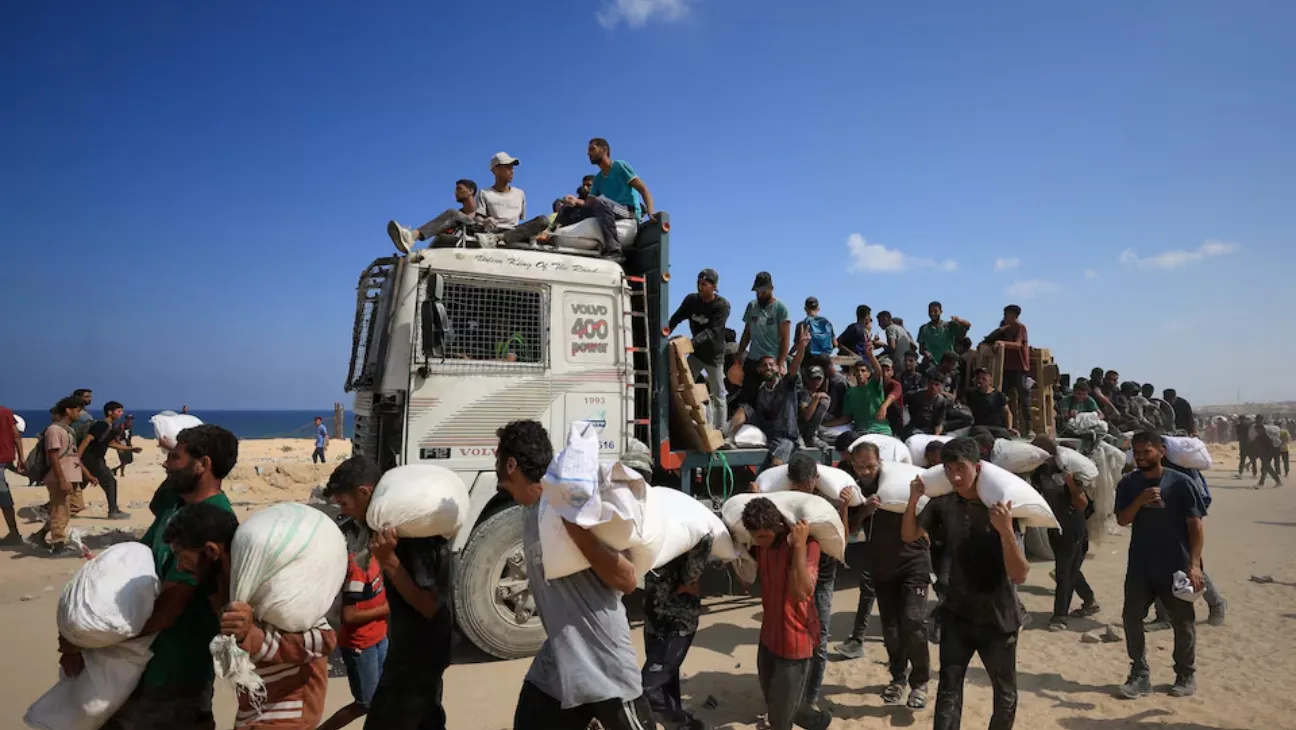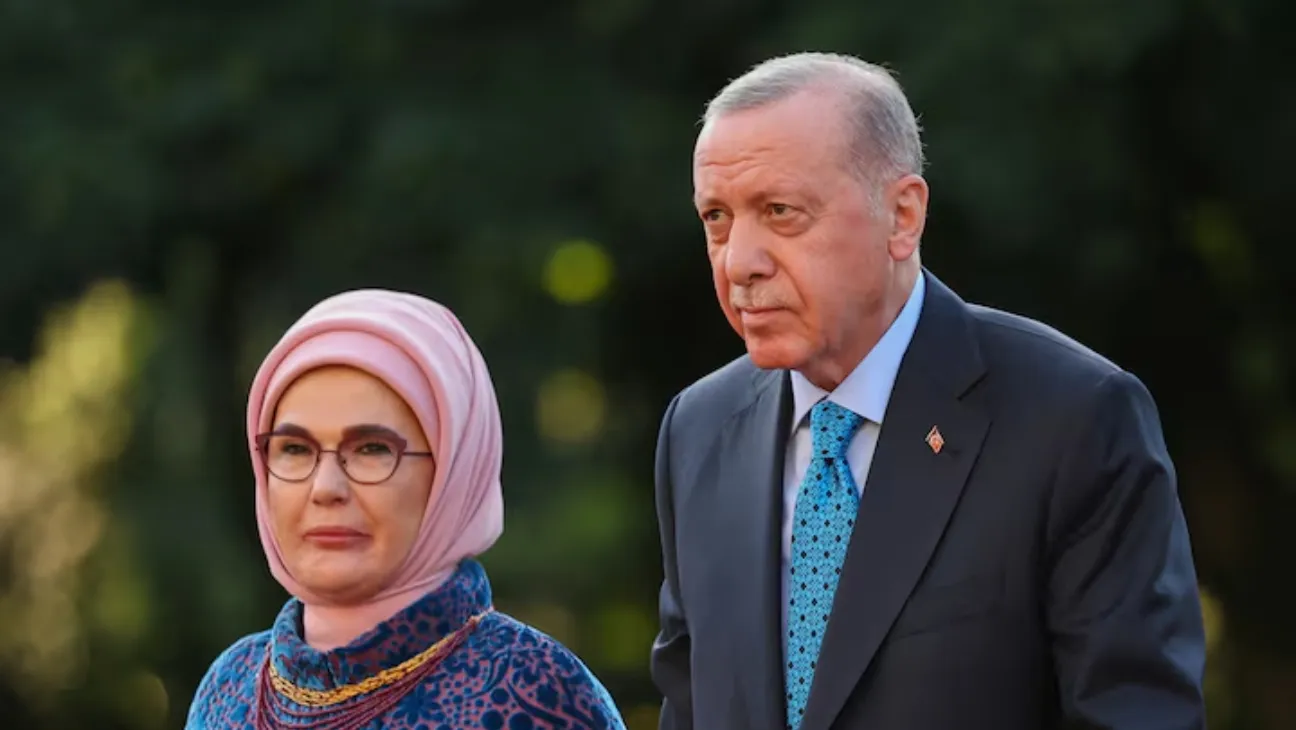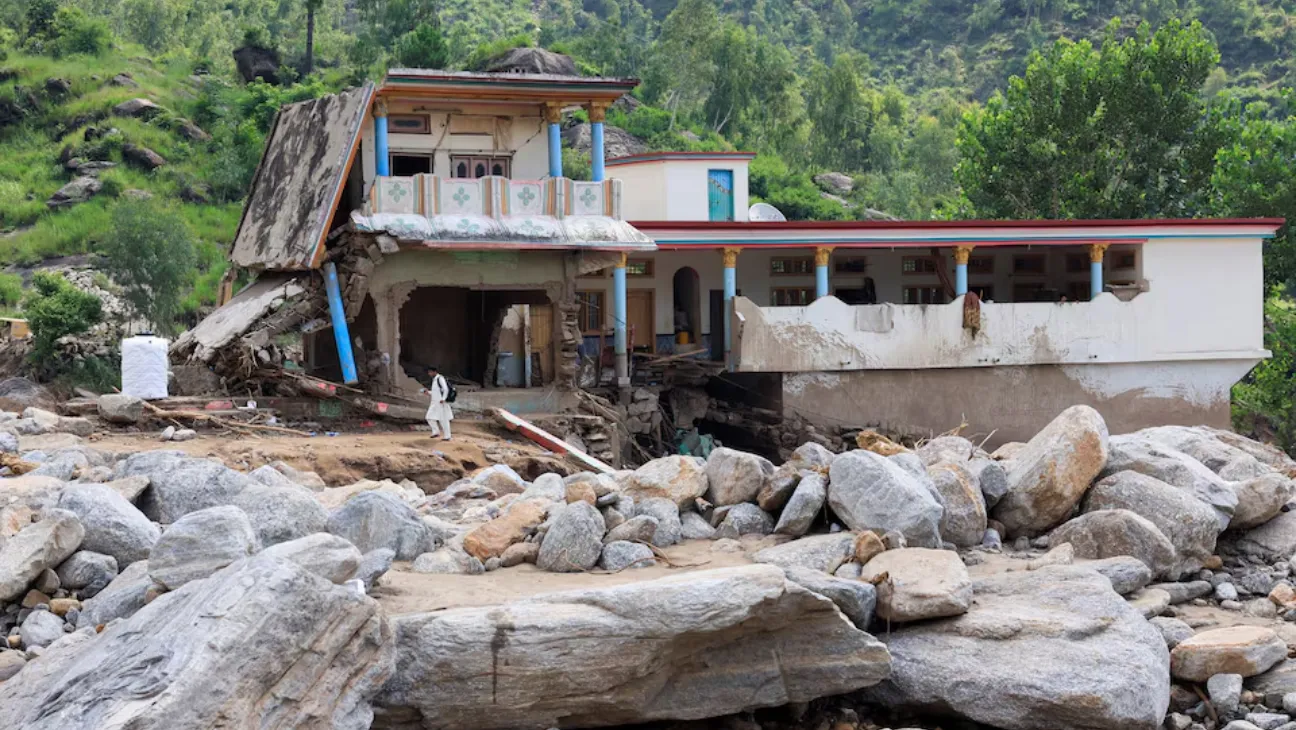At least 67 Palestinians were killed on Sunday in northern Gaza as they waited for food from U.N. aid trucks, according to the territory’s health ministry. The ministry also reported dozens more were wounded in what has become one of the deadliest incidents involving civilians seeking humanitarian aid in recent weeks.
Another six people were reportedly killed near an aid distribution site in the south of Gaza. On Saturday, 36 more deaths were recorded under similar circumstances, bringing the total from aid-related incidents over the weekend to more than 100.
In northern Gaza, Israeli soldiers fired warning shots toward what their military called “a crowd of thousands.” A military official explained the gunfire was meant to stop an “immediate threat.” They also cast doubt on the initial casualty numbers, stating they believe the figures are likely exaggerated.
The military added it does not intentionally target humanitarian operations. It did not comment on the reported fatalities in the south.
The U.N. World Food Programme said its convoy of 25 trucks was swarmed by “massive crowds of hungry civilians” after entering Gaza. The group reported that gunfire broke out shortly after, but did not specify the source. “Any violence involving civilians seeking humanitarian aid is completely unacceptable,” WFP said in a statement.
The killings come as Gaza faces what aid agencies and medical workers describe as a collapse of humanitarian conditions. Nearly two years into the war, large parts of the territory have been reduced to rubble, and food has become dangerously scarce.
The Gaza health ministry, which is controlled by Hamas, said that 18 people had died from hunger in the last 24 hours. Officials warned that many more, including children, are close to starvation. At least 71 children have died of malnutrition since the conflict began, the ministry said, with more than 60,000 others showing signs of undernourishment.
Civilians report skipping meals or eating nothing at all. “As a father, I wake up in the early morning to look for food, for even a loaf of bread for my five children, but all in vain,” said Ziad, a nurse who spoke to Reuters. “People who didn’t die of bombs will die of hunger. We want an end to this war now.”
The U.N. refugee agency UNRWA said it has enough food stockpiled outside the territory to sustain Gaza’s population for over three months. But most of that aid has not been allowed to enter.
Israel’s military insists it supports humanitarian relief and works with international partners to ensure aid flows into Gaza. Still, only a fraction of the necessary supplies are reaching the population.
Also Read: At Least 36 Killed Near Gaza Aid Site Amid Reports of Israeli Gunfire
In central Gaza on Sunday, Israeli planes first dropped new evacuation leaflets over Deir al-Balah. It wasn’t long before airstrikes followed, hitting residential buildings in those same neighborhoods.
For their part, the military stated that while they were targeting Hamas infrastructure, their troops weren’t on the ground there yet.
Some Israeli sources say Hamas may be holding hostages in those areas, which could explain the military’s cautious approach so far. Families of hostages are demanding clarity.
“Can anyone promise us that this decision will not come at the cost of losing our loved ones?” the families said in a joint statement.
The hostages were taken during the October 7, 2023, attack on Israel, when Hamas-led fighters killed around 1,200 people and kidnapped 251. Roughly 50 hostages remain in Gaza, with at least 20 believed to be alive.
Efforts in Doha to broker a 60-day ceasefire and free hostages appear to be stalling. A Hamas official told Reuters that the recent aid-related deaths and deepening hunger crisis were undermining negotiations.
Meanwhile, Pope Leo addressed the conflict during his Sunday address, calling for an end to the “barbarity of war” and expressing sorrow over a recent Israeli airstrike that hit Gaza’s only Catholic church, killing three.
With food prices soaring beyond reach, and families growing desperate, the situation is becoming increasingly fragile. Fathers say they leave their tents just to avoid their children’s questions about meals.
Ceasefire or not, the situation on the ground remains bleak. Aid is running out. Patience is wearing thin. And many in Gaza are now simply waiting—if not for food, then for the fighting to stop.









